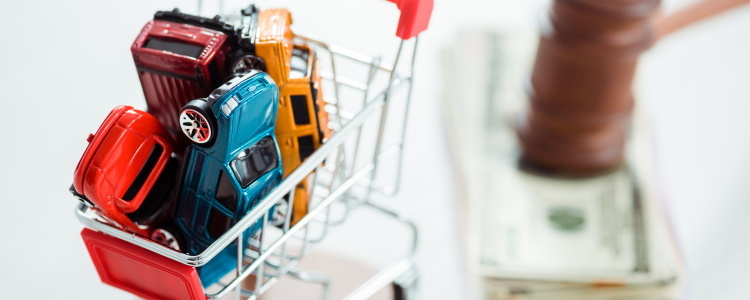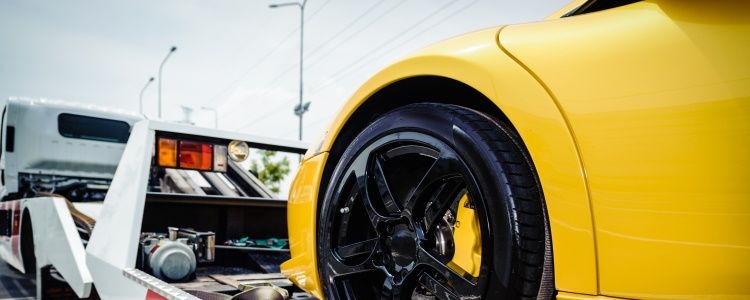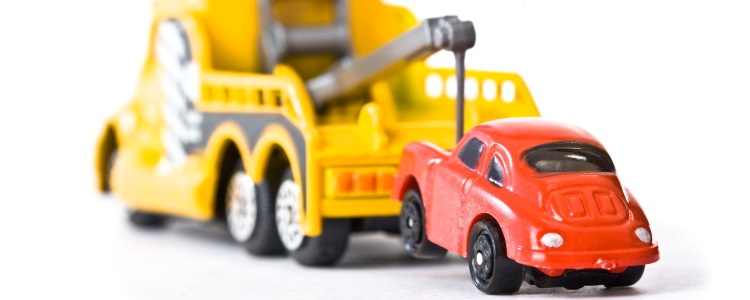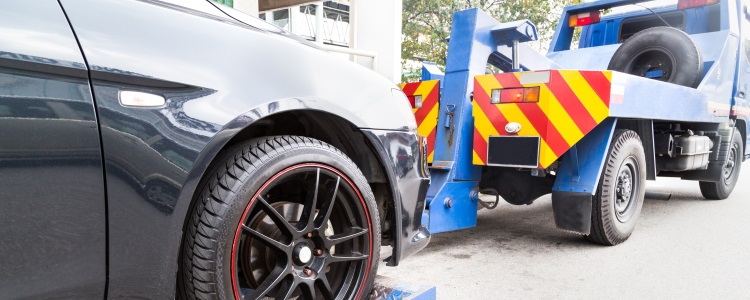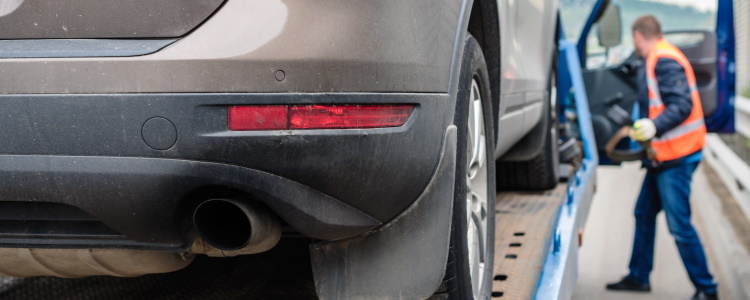If you’re on the hunt for an inexpensive used car, an auto auction could be just what you need. However, it’s pretty different from buying a vehicle at a dealership, so here’s what you need to know.
How Does Buying a Car at an Auction Work?
 Auctions are popular for used car dealers looking for inventory, but that doesn’t mean you can’t join in on the fun. Some auctions are for dealers only, but there are also public auctions that anyone can go to. Many are exclusively online, too, which may be more desirable in this day and age as the coronavirus rages on.
Auctions are popular for used car dealers looking for inventory, but that doesn’t mean you can’t join in on the fun. Some auctions are for dealers only, but there are also public auctions that anyone can go to. Many are exclusively online, too, which may be more desirable in this day and age as the coronavirus rages on.
Two of the most common auction types are government and public auctions. Government auctions typically sell fleet vehicles like old police cars, rentals, taxis, and impound vehicles. Public auctions usually feature cars that were repossessed and end-of-the-line trade-ins.
Once you find an auction that you want to attend, know that these vehicles are sold as is. There isn’t a test drive, and if you get the winning bid, you get what you get. Since auctions only have used cars, the manufacturer’s warranty on these vehicles is usually long gone too.
Many auctions are cash only when it comes to payment methods, so don’t bid more than you’ve got on hand. Financing at the auction site isn’t an option, either. Many auctions require you to pay the full amount before you leave with the car; some require cash up front and allow you to pay the rest later.
Having a pre-approved loan may be an option, though banks and credit unions may not be willing to give you a pre-approval until they know what you’re buying. Many auctions feature vehicles with branded titles, which typically takes a pre-approval out of the running for payment method. However, it’s an option to explore if you don’t have a ton of cash and your credit is in good shape.
Do a Little Research Before the Auction
Since auction cars typically sell for less than they would through a dealership or private seller, you could get a pretty good deal. This is the biggest reason average buyers attend auctions. But before you head out with your checkbook, take some time to prepare.
Often, you’re able to review the listings before the auction starts. This can give you a chance to do some more research on the makes and models you’re interested in. If there’s a specific model you’re looking for, visit vehicle valuation websites like Kelley Blue Book to see their average sale price and private party value estimate.
If you see a listing that you’re particularly interested in, see what information you can dig up with the vehicle identification number (VIN) on websites like Carfax. You may be able to request a vehicle history report to get an idea of what the car has been through before it was put up at auction.
It’s also a good idea to bring someone with you. It’s nice to have a second pair of objective eyes that may be able to check you if you get over your head. Sometimes love is blind, and someone else may serve as your voice of reason if you get goo-goo eyes over a vehicle!
Is an Auto Auction Right for You?
Many cars sold at auctions have branded titles, or it’s the end of the line for them. Some auctions feature vehicles that have been leased, sold, traded in, sold again, then prepped for auction. Keep in mind that some things can be too good to be true, and remember that there could be a very good reason why this “perfect looking” car is so cheap.
Keep your wits about you when you’re at an auction. It can be easy to get caught up in the excitement, and that thrill of a good deal could pump that adrenaline and override your common sense. Remember that auto auctioneers are there to represent the seller, and the seller wants to make cash off the sale, too. Always keep your maximum price in mind, and don’t overextend your own budget.
Auctions aren’t for everyone, either. There’s risk involved with buying a used vehicle at auction where you don’t get to take it for a drive. The test drive is typically a very important part of the car buying process, since you get to feel how it drives on the road and listen for any issues that might be lurking. There’s a good reason why dealerships are still in business in this age of online shopping – buyers like to get a good look at what they’re buying.
Is a Dealership More Your Speed?
While auctions have the potential to get you a great deal on a used vehicle, going through a dealer has many benefits. You have the opportunity to negotiate on the price, go for a test drive, and take your time deciding on what is right for you.
Additionally, not everyone has a ton of cash on them to buy a car outright. Vehicles are expensive investments, so financing is extremely popular, and practical. If you’re struggling with poor credit, you may have a better shot at getting auto financing by looking into special finance dealerships.
Special finance dealers are signed up with subprime lenders that assist borrowers with bad credit. Many traditional auto lenders have high credit score requirements, and even if you have the income to buy a car, a poor credit score could be enough to deny you financing. Subprime lenders, though, look at more than just your credit score to determine your ability to take on an auto loan.
Bad Credit Car Dealerships
Choosing the right avenue to buy your next vehicle can be a challenge. Auctions are popular since they could mean a great deal, but for many people, it’s too risky. Financing can be intimidating if you have less than perfect credit, but we want to help you find a dealer with the connections you need.
Here at Auto Credit Express, we’ve located dealerships all over the country that are signed up with subprime lenders. To get matched to a dealer in your local area with bad credit resources, fill out our free car loan request form.

